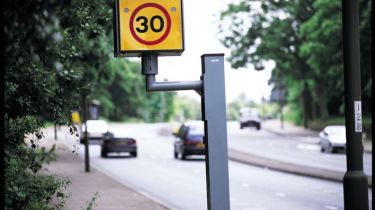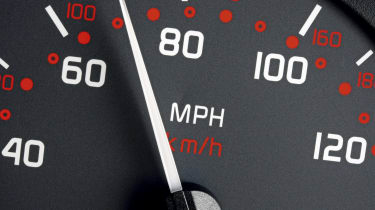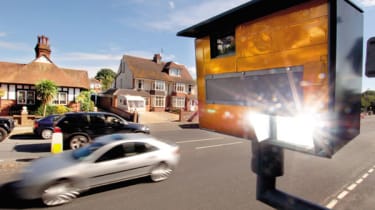Speed awareness courses: format, prices and online options explained
Speed awareness courses are an alternative to a accepting speeding ticket. But what are they all about?

For those caught speeding in the UK there are usually two possible penalties: the first is the dreaded speeding ticket, which will entail a hefty fine and points on your license. This is usually the only option available for repeat offenders or those who have exceeded the speed limit by a considerable amount. The second option is to attend a speed awareness course. This is usually offered to first-time offenders and those who have only strayed ever so slightly over the limit.
Speed awareness courses aren’t exactly popular with a lot of drivers, with many considering them to be just another tax in disguise or simply a waste of time. However, many who have attended one of these educational sessions have been surprised by what they’ve learned, taking home benefits that have been genuinely useful out on the road. Plus, given the option, most people will jump at the chance of a speed awareness course to avoid getting points on their licence and moving a step closer to a potential ban.
If you decide to attend a speed awareness course instead of taking points and a fine, you’ll find that there are countless locations spread across the country. Online courses have also sprung up as a result of the Coronavirus pandemic, meaning that you can take a speed awareness course from the comfort of your own home via a video call, removing at least some of the inconvenience. Sessions typically last for four hours, and you do have to pay a fee to attend. The courses are run by not-for-profit companies, so the price can vary, but the price averages out at around £100.

When you’re considering accepting a National Speed Awareness Course offer, remember that it’s not a test, so there’s no passing or failing. As long as you attend the entirety of the course, demonstrate a positive attitude towards speed awareness and an intention to utilise what you’ve learnt towards driving in a safer manner, then you should complete the course without issue.
How does a Speed Awareness Course work?
If you are offered the chance to attend a speed awareness course instead of getting points on your licence, you will generally have 14 days to respond to the letter of notification from the relevant police force, and either accept or decline the offer. Declining the offer will mean that you automatically revert to points and a fixed penalty fine – unless you are ordered to attend court instead.
Once you’ve accepted the offer, you can go online to book a course at one of the locations and times that the course provider offers. You can attend a course in any part of the country, meaning that you don’t need to return to the location of the offence. A local course provider can be found via the National Driver Offender Retraining Scheme’s official website.
Online courses have become the preferred method since the start of the coronavirus pandemic, over the more traditional, in-person delivery. You can book the course as normal, but you'll instead get an email containing details of how to join a virtual meeting. You're not allowed to have anyone else in the same room as you while taking the course, and nor are you not permitted to take pictures or record the material. Any interference could result in your online speed awareness course ending without a chance of rescheduling.
What is the format of a Speed Awareness Course?
Wherever you go to attend your course, and irrespective of the course provider you choose, the format of the course should be roughly the same. If you're undertaking a face-to-face meeting you’ll be sitting informally in a room with – typically - a couple of dozen other offenders. An instructor at the front of the room will use visual aids and video to help get the message across in a discussion-based format. A virtual course will usually consist of the same material and you may be joined by other offenders in a group setting.

Speed Awareness Course topics
Regardless of the delivery style or course location, you will discuss and learn about these speed-awareness topics:
- The benefits of speed limits
- Attitudes around speeding
- Consequences of speeding
- Driver skill and knowledge
- Driver responsibility
- The difference your speed makes
- Impact of speeding on other drivers
The insurance implications
There is evidence that insurance companies have hiked premiums for drivers who have accepted offers to attend speed awareness courses but, of course, the same happens for drivers who have points on their licences too. You must inform your insurance company if you attend a course – but only if you are asked.
Have you ever been on a Speed Awareness Course? Tell us what you thought of it in the comments section below...
Find a car with the experts




